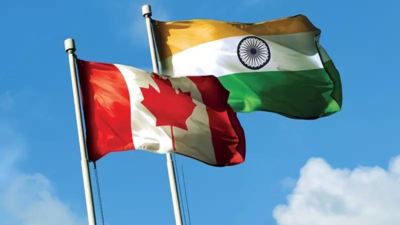Canada’s foreign minister Mélanie Joly on Friday issued a warning to India’s remaining diplomats in the country, cautioning them against endangering Canadian lives. This follows the expulsion of India’s high commissioner and five other diplomats earlier this week after allegations emerged linking Indian officials to the assassination of a Sikh activist.
Joly compared India’s actions to those of Russia, stating that Canada’s national police force has linked Indian diplomats to homicides, death threats, and intimidation on Canadian soil. “We’ve never seen that in our history. That level of transnational repression cannot happen on Canadian soil. We’ve seen it elsewhere in Europe. Russia has done that in Germany and the UK and we needed to stand firm on this issue,” she said during a speech in Montreal.
Asked if more Indian diplomats could face expulsion, Joly responded, “They are clearly on notice. Six of them have been expelled including the high commissioner in Ottawa. Others were mainly from Toronto and Vancouver and clearly we won’t tolerate any diplomats that are in contravention of the Vienna convention.”
The diplomatic fallout began after Prime Minister Justin Trudeau and the Royal Canadian Mounted Police revealed allegations that Indian diplomats had been sharing information about Sikh separatists in Canada with their government. Authorities claimed this information was passed to organised crime groups in India, leading to attacks on Canadian citizens, including drive-by shootings and extortion.
India, however, has dismissed the allegations as baseless and retaliated by expelling Canada’s acting high commissioner and five other diplomats.
The tensions between India and Canada stem from the June 18, 2023, killing of Hardeep Singh Nijjar, a Canadian Sikh activist, outside a cultural center in Surrey, British Columbia. Canadian prosecutors allege Indian officials were involved in the attack, but India has denied receiving any evidence supporting these claims.
The US has also leveled accusations against India, charging an Indian government employee, Vikash Yadav, with a murder-for-hire plot to kill a Sikh leader in New York City. US prosecutors claim the plot was linked to Nijjar’s killing and intended to trigger further politically motivated assassinations in North America.
Despite the ongoing allegations, India has criticised Canada for being lenient towards Khalistan supporters, a banned separatist movement in India that has significant backing among Canada’s Sikh diaspora. Prime Minister Trudeau defended Canada’s stance, asserting that free speech protects such advocacy, though he stressed that his government would address any concerns related to terrorism or incitement of violence.
The Royal Canadian Mounted Police continues to investigate what they describe as an intensifying campaign by Indian agents against Canadian nationals. Four Indian nationals have been charged in Nijjar’s murder and await trial.
